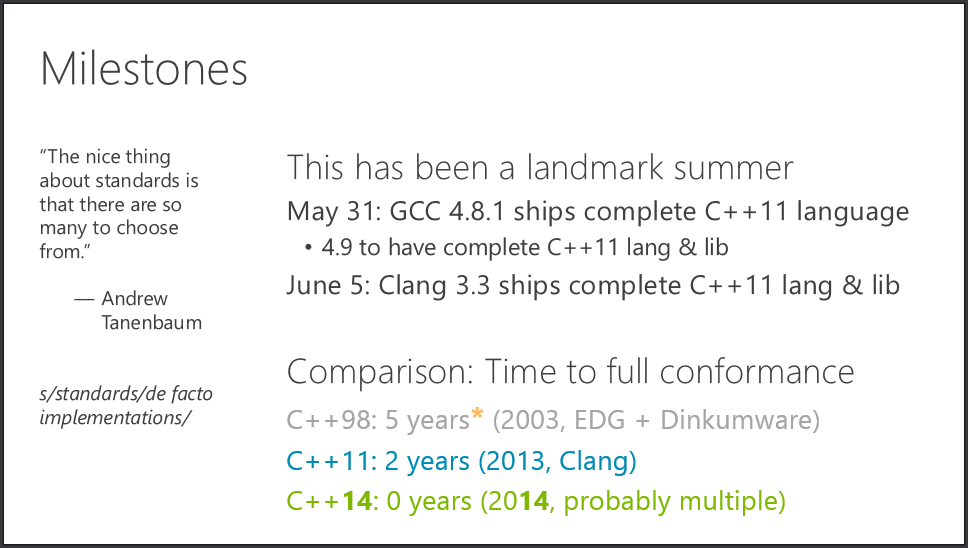N3828: C++ Standards Committee Meeting, Nov 3-8, 2014, Urbana-Champaign
 A new WG21 paper is available. A copy is linked below, and the paper will also appear in the next normal WG21 mailing. If you are not a committee member, please use the comments section below or the std-proposals forum for public discussion.
A new WG21 paper is available. A copy is linked below, and the paper will also appear in the next normal WG21 mailing. If you are not a committee member, please use the comments section below or the std-proposals forum for public discussion.
Document number: N3828
Date: 2014-01-07
C++ Standards Committee Meeting November 3-8, 2014 University of Illinois at Urbana-Champaign
by Jill Peckham
Excerpt:
The Fall 2014 C++ Standards Committee Meeting will be held on the
campus of the University of Illinois at Urbana-Champaign. Hosts for the
meeting are the U of I Department of Computer Science and the Parallel
Computing Institute.Meetings will be held in the Thomas M. Siebel Center for Computer Science
and the Coordinated Science Laboratory, both conveniently located just a
few blocks from either conference hotel and across the street from each
other.

 The solution to the latest GotW problem is now available:
The solution to the latest GotW problem is now available: Registration for C++Now 2014 is now open.
Registration for C++Now 2014 is now open. This morning, LLVM version 3.4 was released!
This morning, LLVM version 3.4 was released!